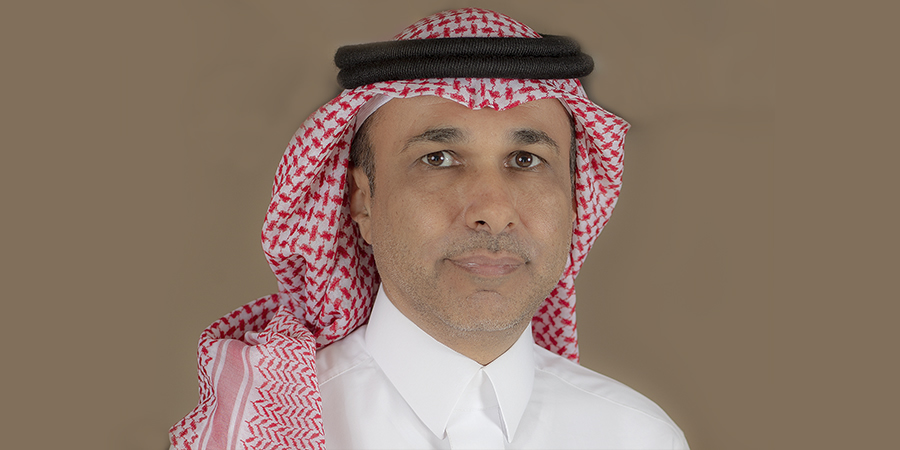Saudi Telecom Company (stc) has recently gone through a major transformation. The telco has navigated its way through Industry 4.0 with great diligence and perseverance, and has become one of the region’s most renowned telecom brands.
The company very recently began its 5G rollout and has positioned itself as a key player and digital enabler. stc has essentially set the standard within both Saudi Arabia and the wider MENA region with its relentless efforts in digital enablement and transformation. The Kingdom is indeed well placed to implement new and emerging technologies, and enable digital ecosystems.
stc has come a long way since its establishment in 1998. The telco sits at the pinnacle of innovation and operates across the rest of the Middle East as well as Asia and Europe. The company has made it its mission to consistently evolve with the trends that dominate the global technology ecosystem and to ensure its work is in constant alignment with Saudi’s Vision 2030.
Telecom Review secured an exclusive interview with the operator’s CEO, the esteemed Eng. Nasser Sulaiman Al Nasser, who shed some light on the current 5G market in the Kingdom, provided some insight into the company’s digital transformation journey and discussed how stc has essentially taken the lead in steering country towards its Vision 2030.
AlNasser’s main statement was: “We will continue to be a pioneer and leader in communications and information technology.”
Why do you position yourself as a digital enabler in Saudi Arabia’s digital transformation journey and what value are you adding to the country’s 2030 vision?
Our vision has been and continues to be providing innovative services and platforms to our customers, and enabling the digital transformation in both Saudi Arabia and the overall MENA region.
We are the first digital enabler and partner in the Kingdom and the region and will continue to achieve that through our own direct activities, along with the support we offer to SMEs by enabling their digitalisation as well. But, most significantly, we aim to support economic growth through our telecommunications and digital infrastructure, along with our platforms and growing digital services.
stc’s ambition to contribute and be a key enabler in the Kingdom’s digital transformation program has served as a motive for us to adopt this concept and transform ourselves from a telecommunication provider to advanced digital player that enables the country’s digitalization. Today, we have many success stories in digital transformation like API management, big data, cloud service and cybersecurity, in addition to internal digital transformation. Yet the potential in this area is tremendous and by far exceeds what has been achieved to date.
stc as the largest digital service provider in the country, is ideally positioned to collaborate with the government and enterprise segment to successfully achieve the three key pillars of the 2030 Vision: a vibrant society, a thriving economy and an ambitious nation.
Your business has very recently gone through a major transformation journey. What have you learned?
stc will continue to play its role as digital enabler to the Kingdom of Saudi Arabia in alignment with vision 2030. We will continue our journey to enhance the digital services to enrich the lives of our customers and employees. As well, we will continue our role and innovative services that enable businesses in different sectors to work more efficiently and economically
We embarked on our “DARE” strategy that sets stc’s journey in digital transformation and growth with new paths. Recently and as part of this journey, we decided to launch the new brand for stc group to enable digitization and open new paths beyond telecommunications, which is an extension of the development and transformation process that stc has been working on for years. Our goal for the development of the Group's new brand translates into a new start in the framework of stc towards playing a major role in enhancing the digital future locally and regionally.
How important is your business to the wider community in KSA?
Our goal at stc is to continue being the pioneer and leader in communications and information technology in the Kingdom by developing programs and initiatives that are in line with our corporate social responsibility and sustainability plan.
Our contribution to local content comes as an initiative name “Rawafed”. This program was launched by stc in 2017, which contributed around 4 billion Riyals to support local content and localization of the technology industry. In addition to that, the company has been working to support localization opportunities in various areas such as optical fiber networks, SIM cards and others.
Further, stc launched "InspireU", the business incubator and accelerator, in 2015. InspireU, which aims to develop the ideas of young people in information technology, communications and digital innovation, is now embracing 28 projects with an initial investment of 60 million Riyals, and a market value reaching to around 300 million Riyals. Today, the projects that have benefited from our business incubator have around 16 million users and have created - directly and indirectly - around 160,000 jobs.
What are your ambitions for your business in the long term and how do you see the potential opportunities in your industry in the coming years?
stc’s ambition is to accelerate its performance globally and to lead the digital transformation locally and regionally to make a positive impact economical, social and environmental-wise. The group’s move towards meeting our ambitions has already begun with our digital transformation journey. stc is well equipped to successfully deliver upon our growth strategy due to the prudent investment in state-of-the -art technology, infrastructure, human capital and overall financial strength, which are crucial ingredients for any company's long-term success.
Part of our strategy is to invest in new domains that are aligned with our digital transformation journey to enrich the people’s experience. Today, we are investing in new technologies such as internet of things, data centers, cloud computing, information security, data analysis, artificial intelligence and fintech.











